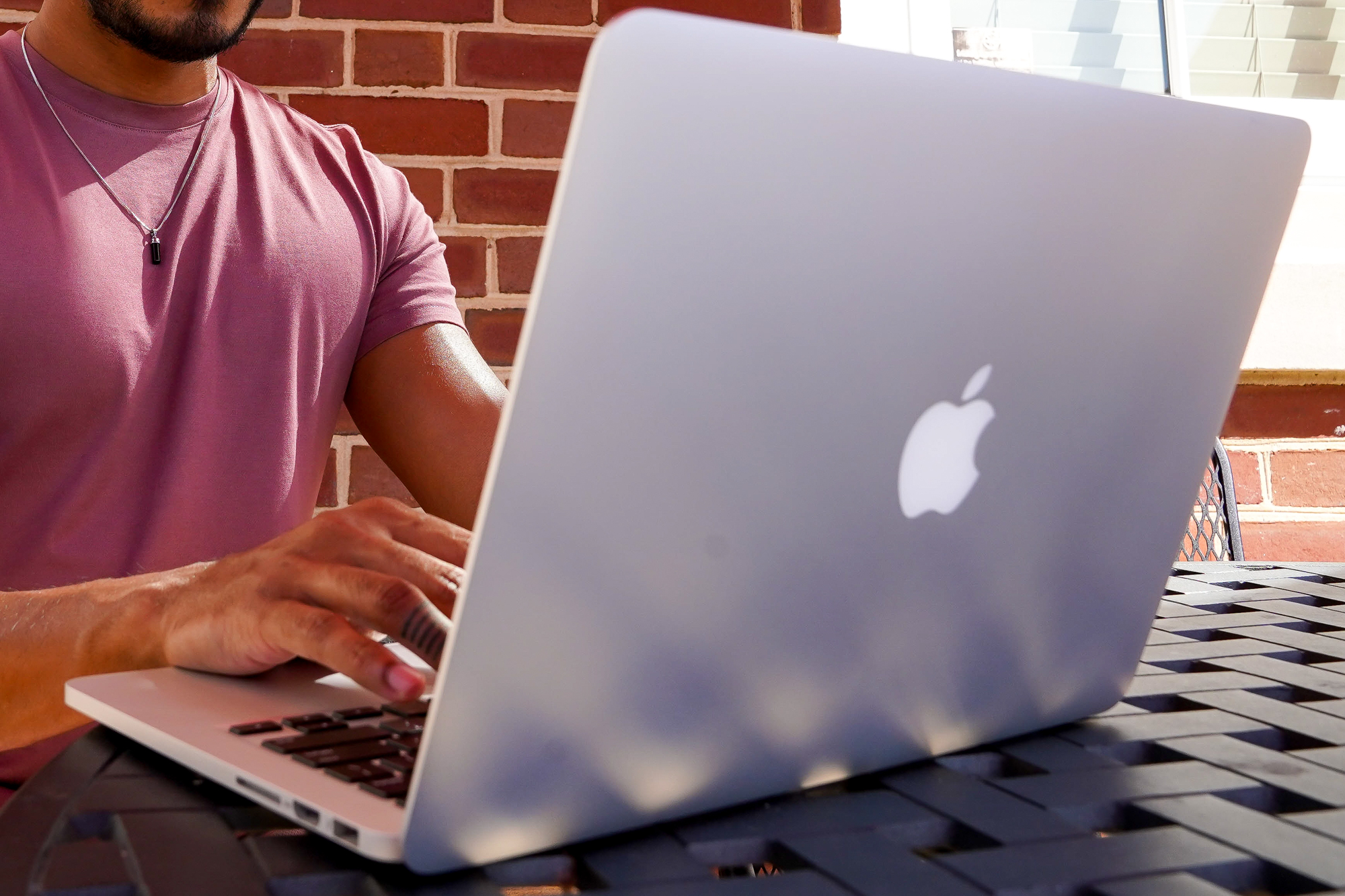Views expressed in opinion columns are the author’s own.
Starting a new semester can be daunting. We don’t know who’s in our classes, how we’re going to manage the new workload nor which professor will end up being the one that gives us that dreaded talk.
This talk typically takes place in the first class of the semester, after we’ve all pulled out our laptops and opened up a new Google Doc for our lecture notes. The talk often begins with the professor citing research showing that using a pen and paper to take notes in class — the “old-fashioned way” — is most effective for studying and retaining course content.
This talk usually ends with the professor telling students they are not permitted to use laptops in class. As such, us students begrudgingly shut our laptops and exchange them for a notebook in our bags. It’s a ritual we know all too well.
While no laptop policies in classrooms may stem from good intentions, laptop bans can actually work to discriminate against and disadvantage many students on this campus. Professors need to allow students the autonomy over their own education and study methods by ending bans on laptops in classrooms.
Most of the arguments against laptop usage in classrooms come from a sense of mistrust professors have in their students. These arguments tell us laptops are distractors for both students using them and those sitting around them. They claim using traditional note-taking techniques have shown better performances on tests, although some studies only show small increases in scores.
This mistrust in students’ abilities to stay focused on lecture material undermines our ability to take responsibility for our own education. Only citing studies that show, on average, students perform better while taking hand-written notes ignores the remaining students who perform better with more modern, technology-based note-taking and study methods.
Personally, I work best when I’m able to take notes during lectures on my laptop. After lectures, I rewrite my notes by hand as a study mechanism, and this has worked best for me since I was in high school. Being in a classroom with a professor who doesn’t allow me to implement a study method I know works for me makes learning more difficult for me — and I’m not alone.
This mistrust in our ability to take responsibility for our education also has dangerous implications for students with accommodations. While most professors, in my experience, have given exceptions to the laptop-usage policies to students with accommodations, they inherently end up exposing those students.
Students with disabilities have felt singled out in classrooms where they are the only ones with their laptops open. The University of Maryland Accessibility and Disability Service policies explicitly state a student’s accommodations or disability-related information must remain confidential unless disclosed by the student themself. These exemption-based accommodations, however, work in contrast to the ADS policies by forcing the student’s disclosure of their disabilities to their classmates.
This can open the door to the isolation of neurodiverse students, the fear of being othered and potential unwanted, invasive questions from peers.
These policies seem to be establishing a trade-off between the privacy of students with accommodations and the slightly improved performance of neurotypical students. Those professors in favor of no laptops in class can be violating the former, even if it’s unintentional.
And these only take into account students who are able to get university-recognized accommodations. Students who tried to gain accommodations through ADS have spoken of inconsistencies in the services provided, and numerous difficulties in being able to get to a point where affected students can even access these exceptions in class. Laptop bans can be part of this issue.
Perhaps, instead of hoping taking students’ ability to use their laptops in class will keep them focused, professors can create more engaging lesson plans. But even greater than that, as college students, we are not children anymore. We are adults who all pay to sit in these classrooms, and it’s our right to have the autonomy to determine how we take advantage of our class time, how we take our notes and how we want to study.
Professors shouldn’t allow their own mistrust to undermine our education, autonomy or classmates with accommodations. As such, it’s time for this university to do away with classroom laptop bans.
Imaan Shikoh is a sophomore public policy major. She can be reached at ishikoh@terpmail.umd.edu.



